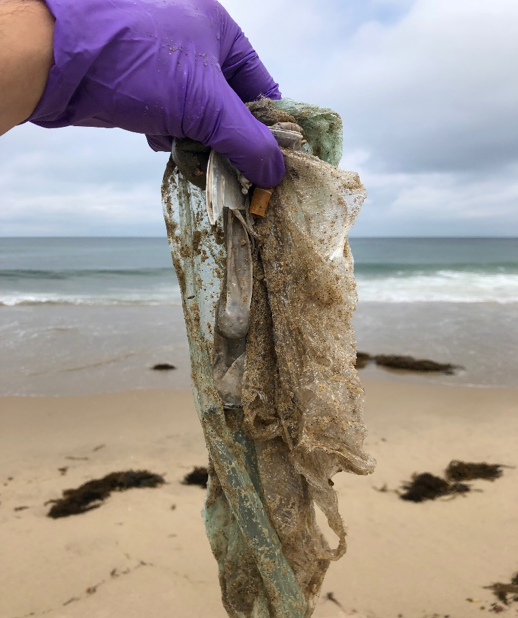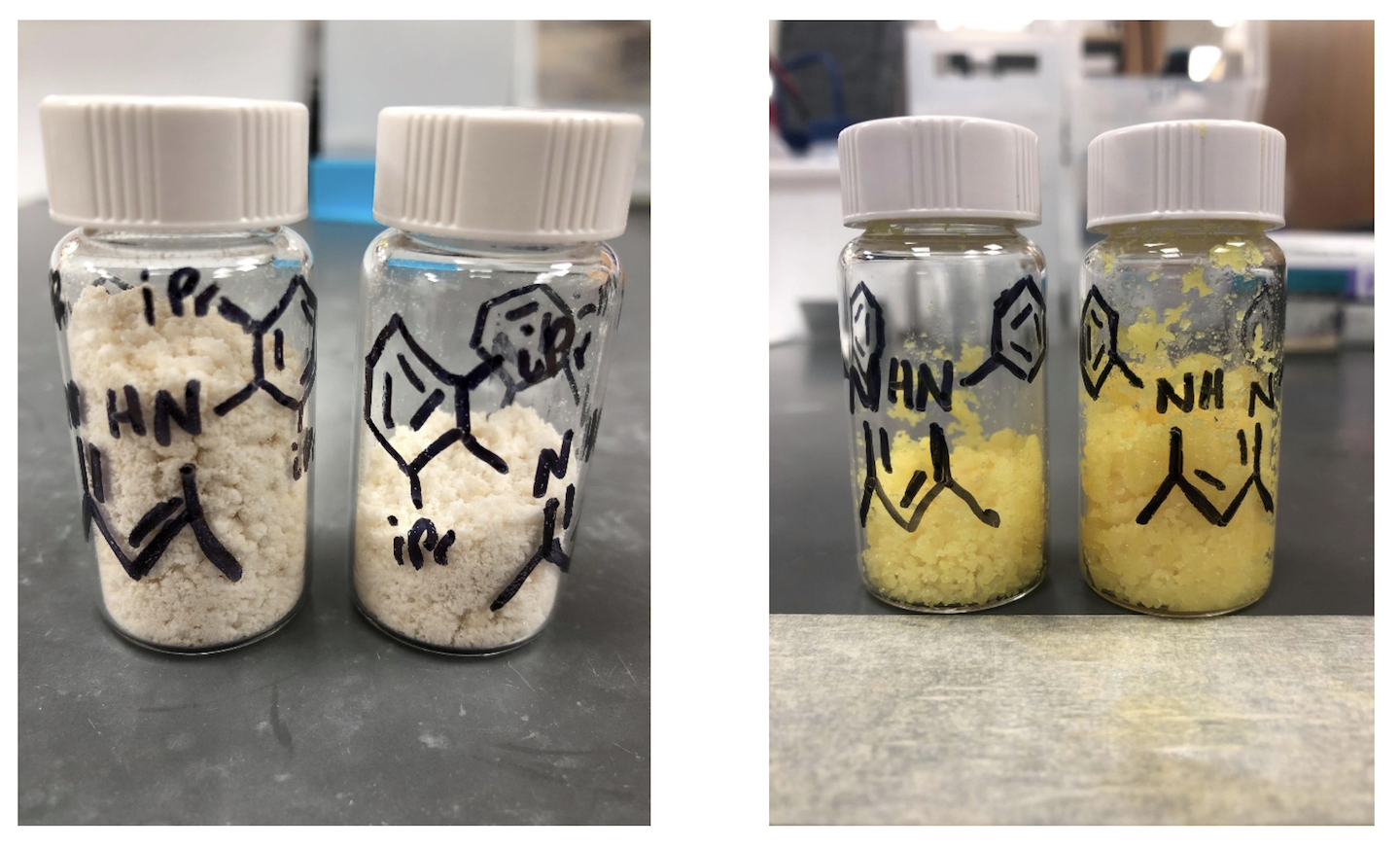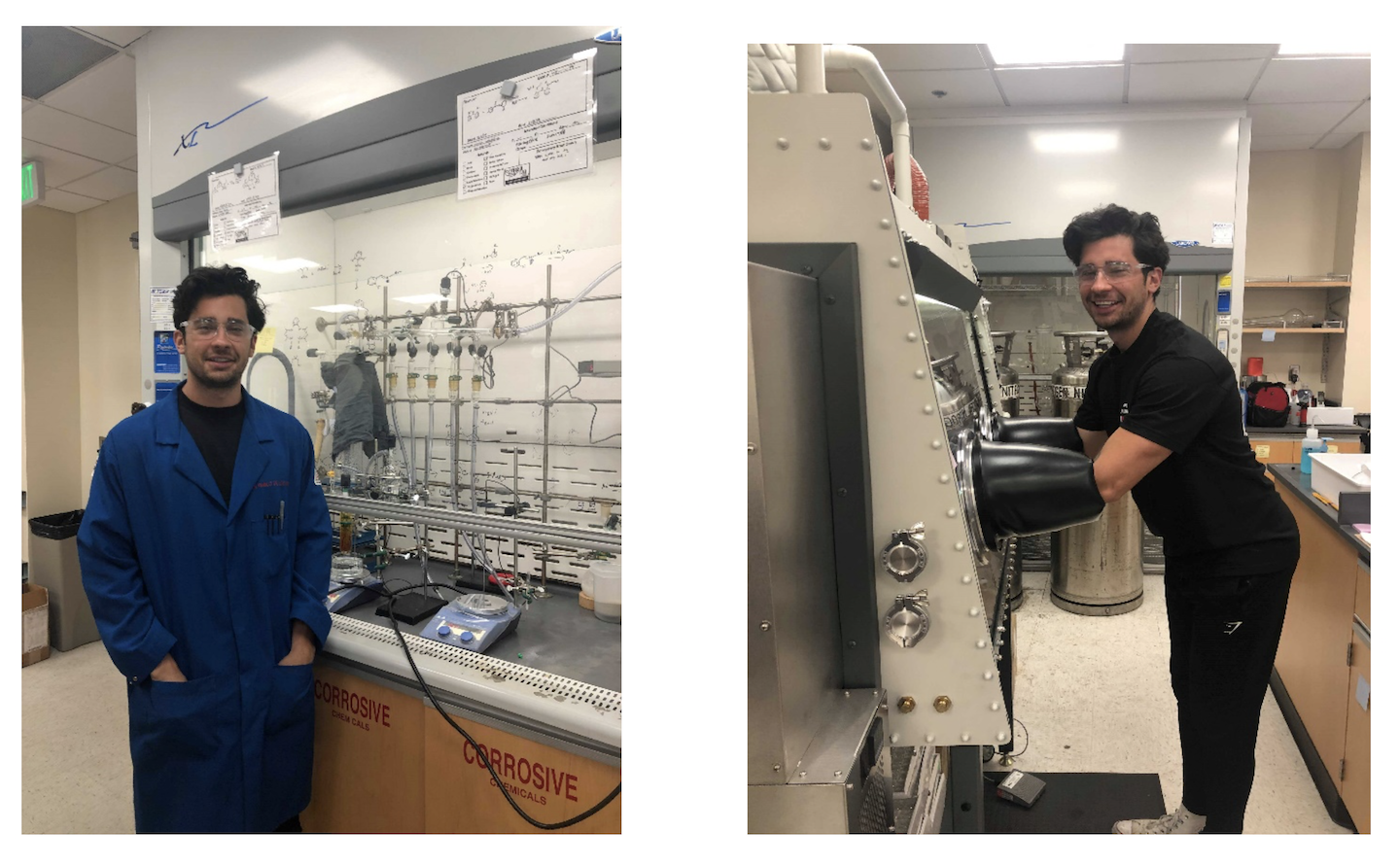By: Juan Pablo de los Rios
Hello! My name is Juan Pablo (JP) de los Rios and I was honored to have been selected as a Norma and Jerol Sonosky Environmental Sustainability Fellow this past summer. I am a first–year chemistry graduate student working with Professor Megan Fieser. The Fieser group’s primary focus is solving what is a leading problem in environmental pollution: plastics. Consumers have abused the applications and use of plastic polymers to the point that plastics are projected to outweigh all fish in the sea by 2050! It is factual that our dependence on single–use plastics has far exceeded exploitation. Thus, we must propose alternative routes to diminish this exploitation and restore the environment’s stability.

These are some plastic pollutants collected by the Fieser Group at Hermosa Beach through the Heal the Bay: Adopt–A–Beach Initiative.
One possible route is to create new polymers that can mimic the properties of those currently produced, while also being degradable. For example, we want to create degradable plastic products that can handle larger fluctuations in temperature or become more flexible and ductile without breaking. For these alternative plastics to be synthesized we must be able to effectively transform the smaller building blocks, or monomers, into the larger polymer chains. These transformations, or polymerizations, occur with the use of metal catalysts. This last summer I have been primarily focusing on synthesizing and characterizing a series of organic ligands that provide support and reactivity to a metal center in a catalyst (rare–earth metals, in particular). Furthermore, I began optimizing reactions to create the metal catalysts that will be capable of polymerizing the monomers into polymers.

These are two organic ligands that I synthesized, characterized, and optimized! I plan on reacting these with lanthanide metals to create my catalysts and eventually begin polymerization reactions.
The second route to solving the plastic apocalypse is to efficiently recycle those that are sitting in landfills or floating in the oceans. The methods used presently to recycle plastics are far from effective. For example, only 2% of plastic water bottles will be recycled into a plastic water bottle again! Therefore, the Fieser group is currently focusing on developing metal catalysts that are capable of transforming, or depolymerizing, the larger polymer chains back into their respective monomers. The best part is that we plan on screening the organic ligands synthesized from the polymerization reactions, but with different metals (alkaline earth metals) to investigate their reactivity for depolymerization. Both of the discussed avenues will help create both environmentally sustainable and cost–effective processes that will reduce the global contamination of plastic materials.

This is a normal day at the Fieser lab. Our air–sensitive chemistry requires proper use of both the Schlenk line (left) and glovebox (right).
It is truly difficult to define our science as strictly organic or inorganic. The Fieser group takes a multidisciplinary approach to create catalysts for our chemical transformations. Thus, members of the Fieser group experience and utilize the techniques and skills of organic and inorganic synthesis. These include isolation and purification methods of our ligands, as well as air–sensitive chemistry in the glovebox and Schlenk line when synthesizing metal complexes.
The Fieser group is a brand–new research group currently situated at the Loker Hydrocarbon Institute but soon moving to our new space in Seeley G. Mudd Building. We are more than excited for our research endeavors and the possible collaborations and contributions that we will bring to USC! Please stay updated with our group website: https://dornsifecms.usc.edu/labs/fieser/
Finally, I would like to acknowledge and sincerely thank Norma and Jerol Sonosky for their generous support in my sustainable research. I have been capable of focusing my time and attention into progressing these alternative avenues that will, hopefully, lead us into a cleaner future. Thank you for reading!
